Teresa Ann Davis, Ph.D. is a Professor of Pediatrics at the Children’s Nutrition Research Center at Baylor College of Medicine in Houston, Texas. She received her doctorate from the University of Tennessee and her postdoctoral training from Washington University School of Medicine in St. Louis, Missouri. Dr. Davis is internationally recognized for her studies on the nutritional regulation of protein metabolism and her work on the nutrient sensing and metabolic signaling pathways that regulate skeletal muscle growth in early life. Dr. Davis received the Stockstad Award from the American Society for Nutrition and both the Animal Growth and Development Award and the Morrison Award from the American Society of Animal Science. She is a Fellow of both the American Society for Nutrition and the American Society of Animal Science. She was a member of the USDA/HHS 2020 Dietary Guidelines Advisory Committee and President of both the American Society for Nutrition and the American Society of Animal Science. She has served as Scientific Advisor for the International Life Sciences Institute North American Food, Nutrition, and Safety Program and for the Riddet Institute, New Zealand. Dr. Davis is the Editor-in-Chief of The Journal of Nutrition.
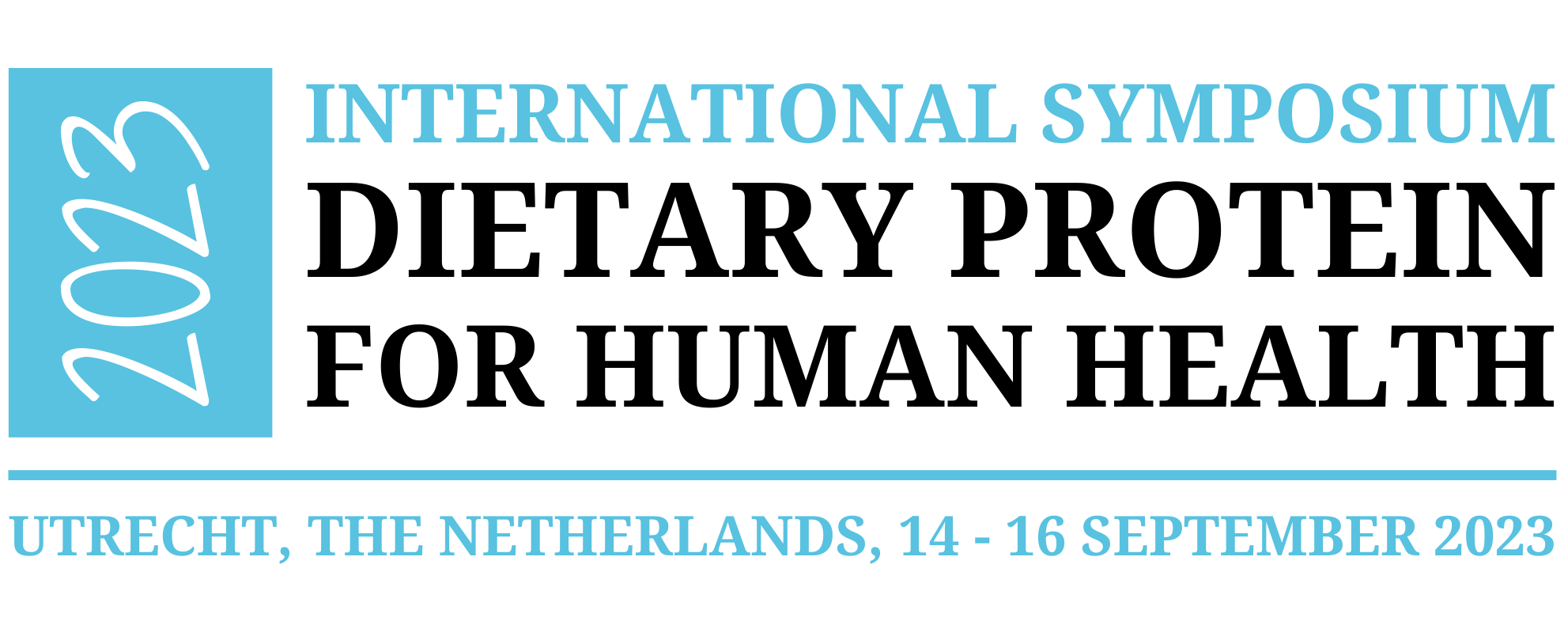
Symposium Speakers
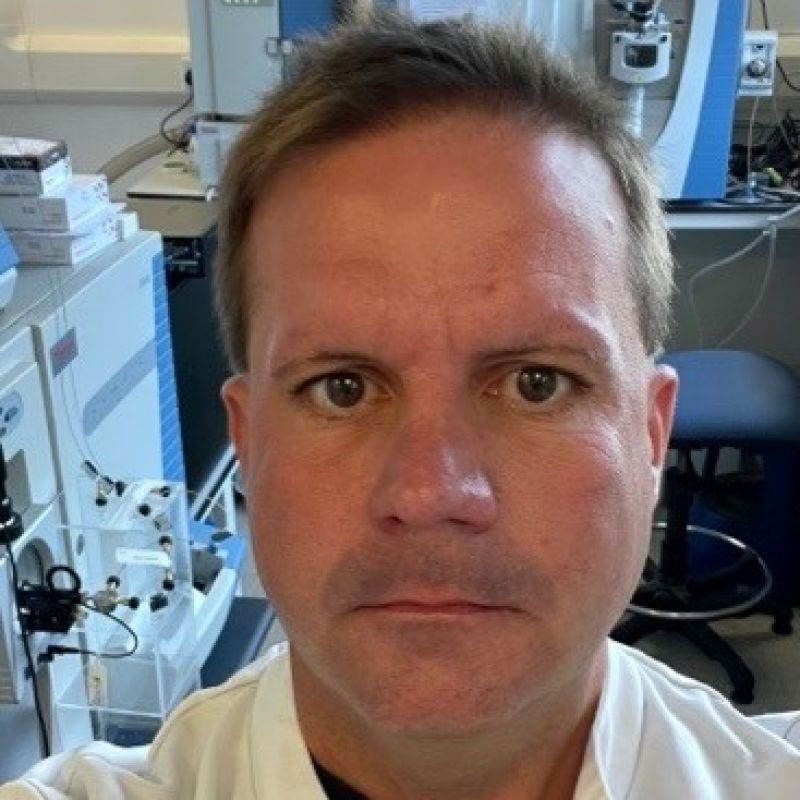
Prof Phil Atherton
Professor Philip J Atherton is Chair of Clinical, Metabolic & Molecular Physiology at the University of Nottingham, UK. Following a PhD (2005) and BBSRC funded postdoc (2007) he was awarded a personal Research Councils UK fellowship (2009), before being promoted to associate and then full professor (2017) with a diverse portfolio of physiology, metabolism, and endocrinology research. Phil has been principal/co-investigator on grants to the tune of ~£15M from UK research councils, charities, industry, and EU sources. Phil has published ~250 peer-reviewed articles (H-index of 67; >21,000 citations) and 7 invited book(s) chapters. He is a current member of the Medical Research Council (MRC) Populations & Systems Medicine Board (PSMB) and founding editor-in-chief of Physiologia.

Dr Tamsin Blaxter
Tamsin Blaxter is an interdisciplinary scholar of food systems, bringing perspectives from history, language and discourse to better understand the current conflicts and crises of food production and consumption. She did her PhD in linguistics at the University of Cambridge followed by a Research Fellowship at Gonville & Caius College, Cambridge. She is currently working at the University of Oxford for TABLE, an international group exploring the implicit values and assumptions behind debates about the future of food. Her work there has explored the history of science and public debate around protein, and the current cross-cultural connotations of protein and protein foods. Along with the rest of the TABLE team, she is currently exploring how ideas about ‘nature’ and ‘naturalness’ shape popular discourse about food and health.

Prof Yves Boirie
Yves Boirie is Professor in Nutrition and Hospital Physician at the Clermont-Ferrand University Hospital. He is Head of the Clinical Nutrition Department of the University Hospital Centre and heads the research team "Food and Musculoskeletal Health" within the Human Nutrition Unit (UMR 1019 INRA / University Clermont Auvergne) of the Nutrition Research Centre. His main research theme focuses on the protein renewal of the body, especially in muscle, and the impact of nutrients and hormones in maintaining muscle. His expertise is recognised in the field of sarcopenia associated with aging and chronic diseases. He is also developing translational research to prevent muscle loss through nutrition. In terms of clinical research, he carries out projects focused on the metabolic impact of obesity and muscle function. He is the author of more than 180 original publications in international journals and about fifty journals and chapters.
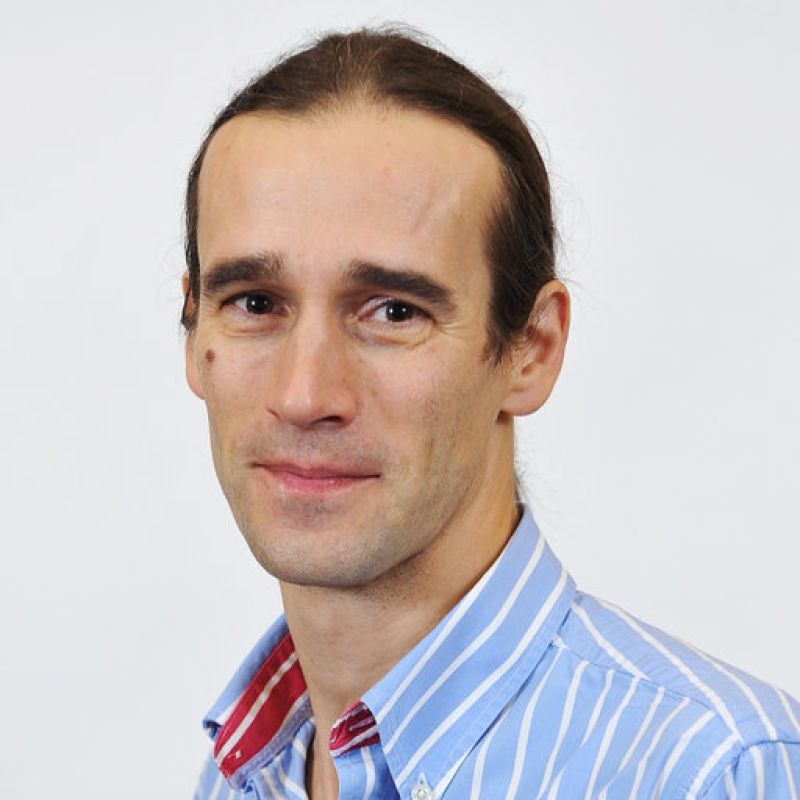
Dr André Brodkorb
André Brodkorb is a Principal Research Officer in the Teagasc Food Research Centre Moorepark, Ireland. His research interest covers the structure/function relationship of food and food ingredients, proteins from animal and plant-base sources in particular. Changes are monitored from “from source to delivery” i.e. harvest, processing, food production, storage all the way to consumption and gastro-intestinal transit in vitro and in vivo. Research on structuring of food components is also applied for the development of encapsulation devices for the delivery of bioactives or cells in protein-based aggregates or micro-gels. Andre Brodkorb is a lead author of the international consensus Infogest in vitro digestion method for food. 1,2 He also hosted 15 digestion-related webinars by international expert, all available on the Infogest YouTube channel.

Prof Barbara Burlingame
Dr Barbara Burlingame is a scientist and professor of nutrition and food systems. She received her PhD from Massey University (New Zealand) and bachelor’s degree from University of California, Davis, in nutrition science and environmental toxicology. Her research expertise includes food composition, nutrient requirements, dietary assessment, biodiversity for food and nutrition, indigenous peoples' food systems, sustainable diets, and provision of scientific/policy advice on food security and nutrition. Barbara is author of 60+ papers in international, peer-reviewed journals, 17 books as author, 24 book chapters, 18 books as editor, and hundreds of contributions to reports and UN publications. Barbara was previously the Chief/Deputy Director of Nutrition at the Food and Agriculture Organization of the United Nations. She is now a Professor at the Riddet Institute, Massey University. Barbara is also a member of the Steering Committee of the High Level Panel of Experts for the Committee on World Food Security (2019-2023), co-chair of the Sustainable Diets Task Force for the International Union of Nutritional Sciences (IUNS), specialty Chief Editor of Frontiers in Nutrition and Frontiers in Sustainable Food Systems, member of the Global-Hub on Indigenous Peoples’ Food and Knowledge Systems, and member of the Scientific Advisory Committee of the UN Food Systems Coordination Hub.

Dr Sylvia Chungchunlam
Dr Sylvia Chungchunlam is a Research Officer at the Riddet Institute, Massey University. Her background is in biomedicine, and she has a PhD in Nutritional Sciences from the Riddet Institute. Sylvia’s research investigates the physicochemical properties and the nutritional value of a wide range of plant proteins, to provide a fundamental understanding of composite plant proteins that can be functional in different types of food applications. Her current research is also based around using Linear Programming as a dietary modelling approach to evaluate the respective roles of animal- and plant-based foods in nutritionally adequate dietary patterns formulated at the lowest cost. Her work focuses on the inclusion of protein quality and nutrient bioavailability when evaluating human nutrition, dietary intake requirements, formulation of diets, affordable and sustainable dietary patterns, and food and nutrient security.

Dr Glenda Courtney-Martin
Dr Glenda Courtney-Martin is a Health Clinician Scientist and Senior Associate Scientist in the Research Institute, Hospital for Sick Children (SickKids), Toronto, and Associate Professor at the Department of Nutritional Sciences, University of Toronto. Her research, supported by the Canadian Institute for Health Research (CIHR), is focused on protein and amino acid requirements and metabolism across the lifespan. In addition, using the combined indicator amino acid oxidation slope ratio method, her laboratory is evaluating dietary protein quality of foods for human nutrition.

Prof Teresa Davis
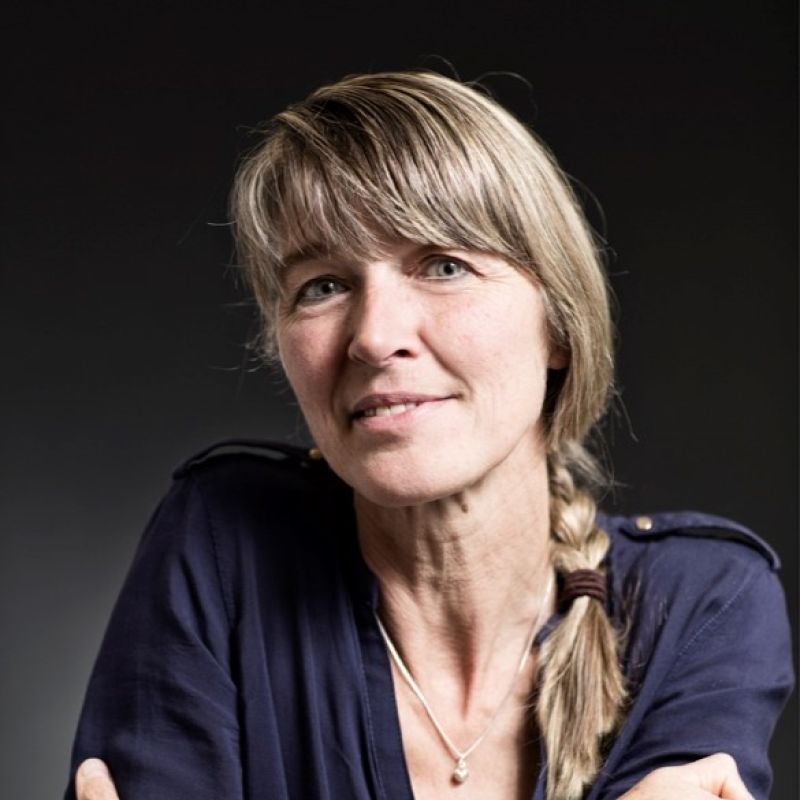
Prof Lisette de Groot
Lisette de Groot is Professor of Nutrition and Ageing at the Division of Human Nutrition at Wageningen University, the Netherlands. After her MSc and PhD in Nutrition, physiology and epidemiology at Wageningen University, she has worked at academic posts at several University departments, gaining almost thirty years of research experience in the field of nutrition and health of elderly people. Her work focuses on both nutritional epidemiology (including e.g. SENECA, Survey in Europe on Nutrition and the Elderly; EURRECA European micronutrient recommendations aligned; HALE; NuAge; Chances) and on physiological intervention studies in older aged individuals. Her research interests center around the role of nutrition in the maintenance of health in old age with due attention for nutritional ways to slow down aging related functional decline. Professor de Groot has published over 400 research papers, has contributed to many international multicenter projects, and has ongoing collaborations around the world.
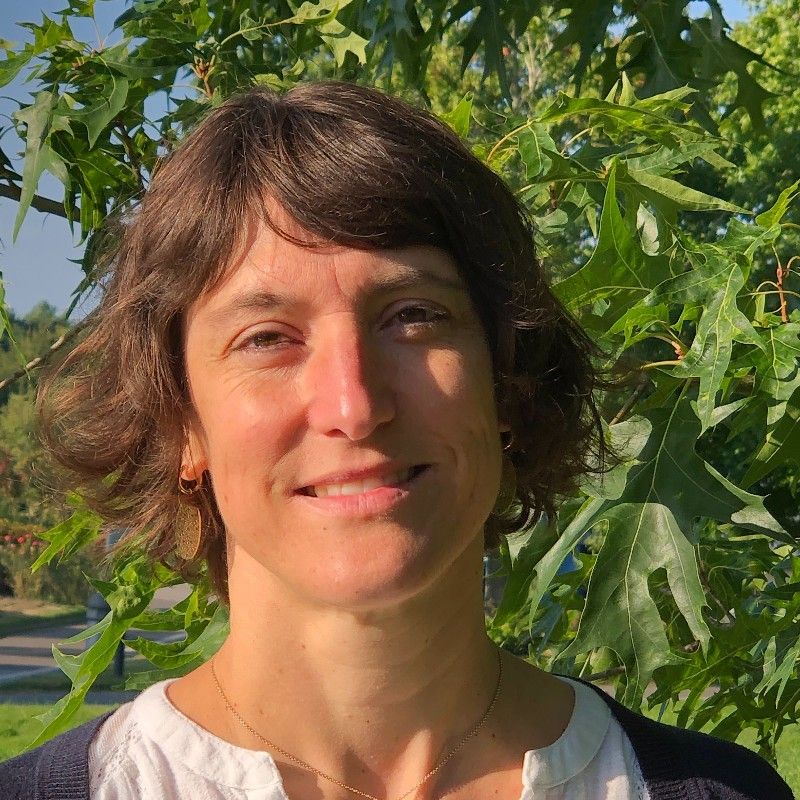
Assoc Prof Amélie Deglaire
After a PhD diploma in human nutrition related to the evaluation of the dietary protein nutritional quality at Massey University, Amélie Deglaire is now an associate professor at L’Institut Agro Rennes-Angers in nutrition and food sciences. She is the co-leader of the research team “Bioactivity & Nutrition” in the STLO lab, in Rennes, France. Her research focuses on the nutritional quality and digestion behavior of infant foods, including infant formula and human milk, with a special interest for proteins.

Prof Mick Deutz
Dr. Deutz is a Professor and the Director for the Center for Translational Research in Aging & Longevity at Texas A&M University. His research interests are in clinical nutrition and metabolism in animals and humans for more than 30 years and he has published over 400 papers. His clinical interest is using nutritional supplements to treat malnutrition in older adults and during acute and chronic disease states. His research focuses on (inter)organ protein and amino acid metabolism using animals (mice, rats, pigs), healthy humans, and patients with various acute and chronic diseases, including sepsis, (pre)diabetes, obesity, cancer, and COPD. As PI, he has conducted many federal and industry-sponsored research projects. Since 1988, he has been an active member of the European Society of Clinical Nutrition and Metabolism (ESPEN) and chaired the scientific committee from 2000 - 2005. Since 2006, he has been the Editor-in-Chief of the society's journals.

Dr Didier Dupont
Didier Dupont is the Vice Director in charge of European Partnership and correspondent for the Qualiment Carnot Institute. He has a PhD in Life and Health Sciences, and is particularly interested in understanding how our diet can affect our health. His work aims to better understand the mechanisms of disintegration of food in the digestive tract to underpin the food-health relationship and to design new foods adapted to the nutritional needs of specific populations such as the newborn or the elderly.

Assoc Prof Rajavel Elango
Dr. Rajavel Elango is an Associate Professor in the Department of Pediatrics, and School of Population and Public Health, at the University of British Columbia, Vancouver, Canada. He is also an Investigator at the Research Institute, BC Children's Hospital. Dr. Elango’s research program focuses on identification of dietary requirements for protein and amino acids, and protein quality of foods during key stages of growth and development, such as pregnancy, lactation, childhood malnutrition and in in-born errors of metabolism using state-of-the-art stable isotope techniques. Dr. Elango is a Deputy Editor for the British Journal of Nutrition, and a Section Editor for the Current Opinion in Clinical Nutrition and Metabolic Care. He is a member of the American Society for Nutrition and Vice-President (Research) for the Canadian Nutrition Society. Dr. Elango has been part of the United Nations - Food and Agriculture Organization (FAO) 2014 and 2017 Expert Working Group on protein quality of foods, and a recent 2022 International Atomic Energy Agency (IAEA) Expert Meeting on “Assessment of Protein Requirements and Protein Quality and for the Development of a Protein Digestibility and Quality Database”.

Prof Jessica Fanzo
Jessica Fanzo, Ph.D., is a Professor of Climate and the Director of the Food for Humanity Initiative at Columbia University’s Climate School in New York City. She also serves as the Interim Director for the International Research Institute for Climate and Society, also known as IRI. Prior to coming to Columbia, she held positions at Johns Hopkins University, the Food and Agriculture Organization of the United Nations (UN), the UN World Food Programme, Bioversity International, the Earth Institute, the Millennium Development Goal Centre at the World Agroforestry Center in Kenya, and the Doris Duke Charitable Foundation. She has participated in various collective endeavors, including the Food Systems Economic Commission, the Global Panel of Agriculture and Food Systems for Nutrition Foresight 2.0 report, the Lancet Commission on Anaemia, and the EAT-Lancet Commissions 1 and now 2. She was also the Co-Chair of the Global Nutrition Report and Team Leader for the UN High-Level Panel of Experts on Food Systems and Nutrition. She currently leads the development of the Food Systems Dashboard and the Food Systems Countdown to 2030 Initiative in collaboration with the Global Alliance of Improved Nutrition.

Dr Andrew Fletcher
Andrew Fletcher is an Honorary Fellow at the Riddet Institute where he has been part of the Sustainable Nutrition Initiative (SNi®) since its inception. SNi aims to provide robust scientific evidence for the sustainable food systems debate. He has had a long career in Fonterra – in a variety of research management and strategy roles within the cooperative and across the wider New Zealand dairy industry – and is currently Programme Leader Sustainable Food Systems, which includes work on on-farm GHG mitigation technologies and how changes in on-farm technology are captured in product footprints. Within SNi his focus is on the development of tools and models – such as the DELTA Model – that enable users to develop their understanding of the global food system and the contribution of foods and food production technologies to sustainable nutrition.

Prof Claire Gaudichon
Claire Gaudichon is Professeur of nutrition at AgroParisTech (Université Paris-Saclay, Palaiseau, France). She is an expert on protein digestion and metabolism, particularly during the postprandial phase using stable isotope methods.
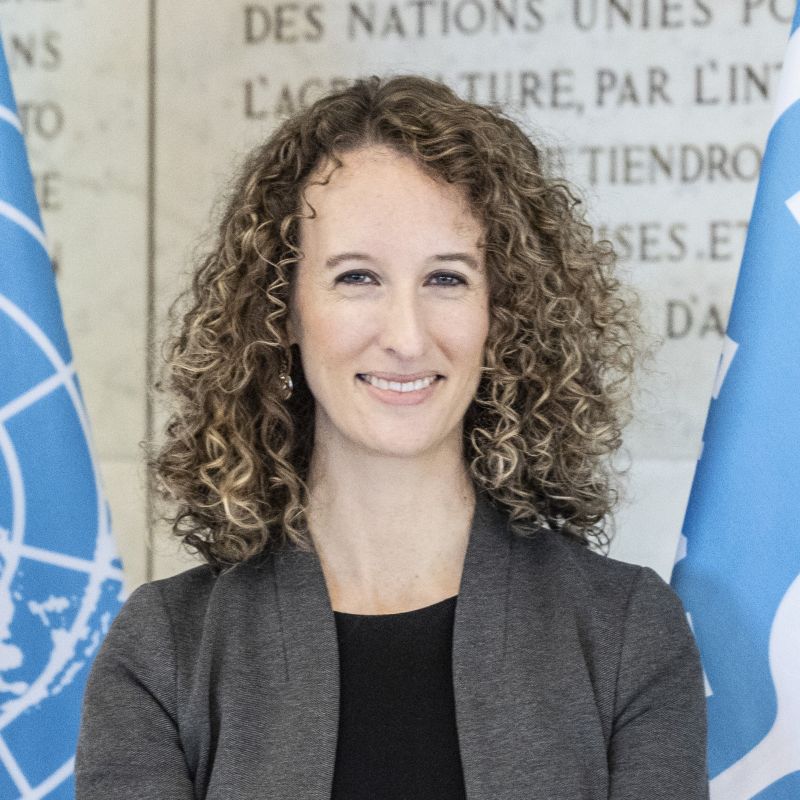
Megan Harrison
Megan Harrison is a nutrition & public health expert with 12 years of experience providing technical nutrition support to sustainable food systems, non-communicable disease, obesity prevention, food security, and maternal and child health programmes. Her work is grounded in the belief that health is a human right and she is driven to eliminate health disparities and ensuring all people have access to the nutritious foods necessary to live full and healthy lives. Megan’s work experience has spanned governmental organizations, research institutions, acute healthcare systems, and international nonprofits, including the U.S. Centers for Disease Control & Prevention (CDC) and Partners In Health (PIH). As a Nutrition & Food Systems Officer at FAO, she currently provide hands-on subject matter expertise to low-and middle-income countries to develop national food-based dietary guidelines that accelerate sustainable food systems transformation. She holds a BS in Dietetics from Purdue University, a MPH from the University of Minnesota, and is a Registered Dietitian and certified Project Manager. In her spare time, Megan is an avid cook and outdoors enthusiast.

Prof Wouter Hendriks
Wouter H. Hendriks, Ph.D., holds the chair of Animal Nutrition at the Department of Animal Science of Wageningen University and the chair of Nutrition at the Faculty of Veterinary Medicine of the University of Utrecht in the Netherlands. In his current capacity, he manages and directs active research programs examining aspects of general mammalian and avian nutrition and physiology. His main expertise is focussed in the area of protein nutrition, digestive physiology and comparative nutrition. He is currently an editorial board member of 3 international journals related to animal nutrition and feeds. He received his Ingenieur degree in Animal Nutrition from Wageningen University and his Ph.D. in Monogastric Nutritional Physiology from Massey University in New Zealand. Wouter has over 300 peer reviewed journal publications and has had the privilege to guide 62 candidates to obtain their Ph.D. Currently he is the Dean of Research at Wageningen University and supervises 12 candidates to obtain their Ph.D.

Dr Suzanne Hodgkinson
Dr Suzanne Hodgkinson is leading the Nutrition Team of the Riddet Institute at Massey University. She is involved with human studies as well as the use of animal models for nutritional studies. Along with commercial studies, Dr Hodgkinson continues to research methods to determine protein quality for human diets, along with protein digestion and metabolism.
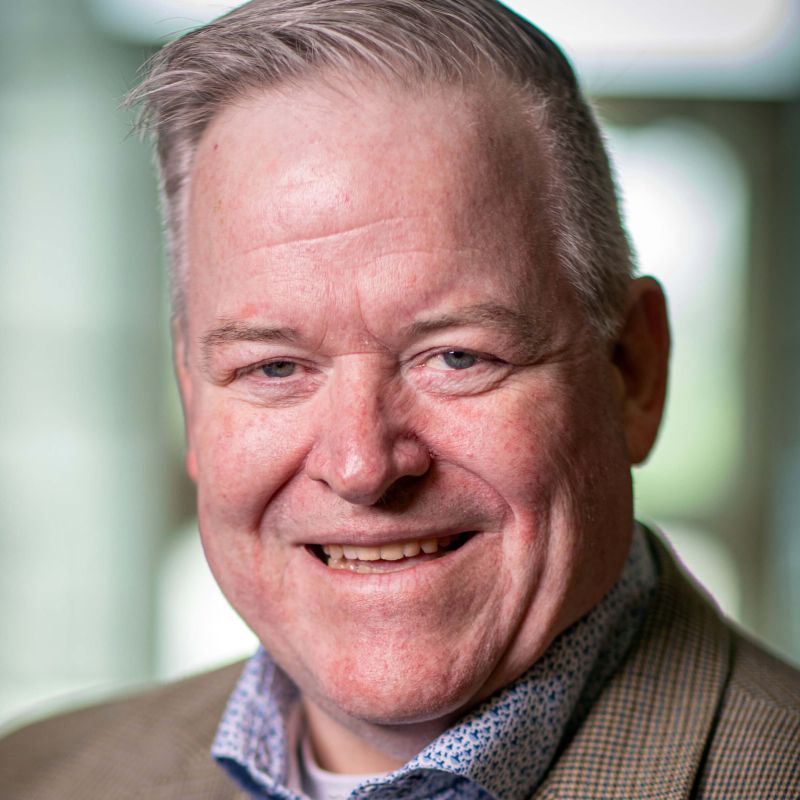
Prof James House
Dr. House is Full Professor and the Manitoba Strategic Research Chair in Sustainable Protein in the Department of Food and Human Nutritional Sciences, University of Manitoba, Winnipeg, MB, Canada. He completed his Ph.D. in amino acid nutrition and metabolism from the University of Guelph, Ontario, Canada in 1996. Since arriving at the University of Manitoba in 1998, he has maintained research programs in 3 primary areas: 1) understanding factors regulating sulphur amino acid metabolism in animals; 2) sustainable egg production systems, including novel value-added egg products; and 3) determining factors influencing the quality of dietary proteins. His research program has trained over 40 graduate students and 16 post-doctoral fellows and research associates, as well as over 40 undergraduate research assistants. His research program has advanced our understanding of factors affecting the utilization of plant- and animal-based protein sources in the human diet. He is a fellow of the Canadian Nutrition Society (CNS) and has received awards from the Canadian Society of Animal Science, the Canadian Society of Nutritional Sciences (now the Canadian Nutrition Society), as well as awards for merit and administrative service from the University of Manitoba. Dr. House has served as President for the Canadian Nutrition Society (2018) and was recently elected (2021) as a member of the Board of Trustees for the newly established Institute for the Advancement of Food and Nutrition Sciences (IAFNS). His research program is funded via NSERC Discovery Grants, as well as numerous tripartite funding programs involving industry and government partners. He is the program lead for the Manitoba Protein Research Strategy.

Dr Mitch Kanter
Mitch Kanter, PhD, is the Chief Science Officer for the Global Dairy Platform, a collaboration of global dairy companies, associations, and scientific partners that build evidence of dairy’s role in the diet, and demonstrate the sector’s commitment to responsible and sustainable food production. During his 30-year career in the food and agriculture industries, Mitch has served in various technical leadership roles for several multinational companies, including the Quaker Oats Co, General Mills, and Cargill, as well various agriculture industry organisations. Mitch holds a PhD from The Ohio State University, and Master’s Degrees from Queens College in New York. He also served as an NIH Post-Doctoral Research Fellow in the Dept of Preventive Medicine at the Washington University School of Medicine in St. Louis.
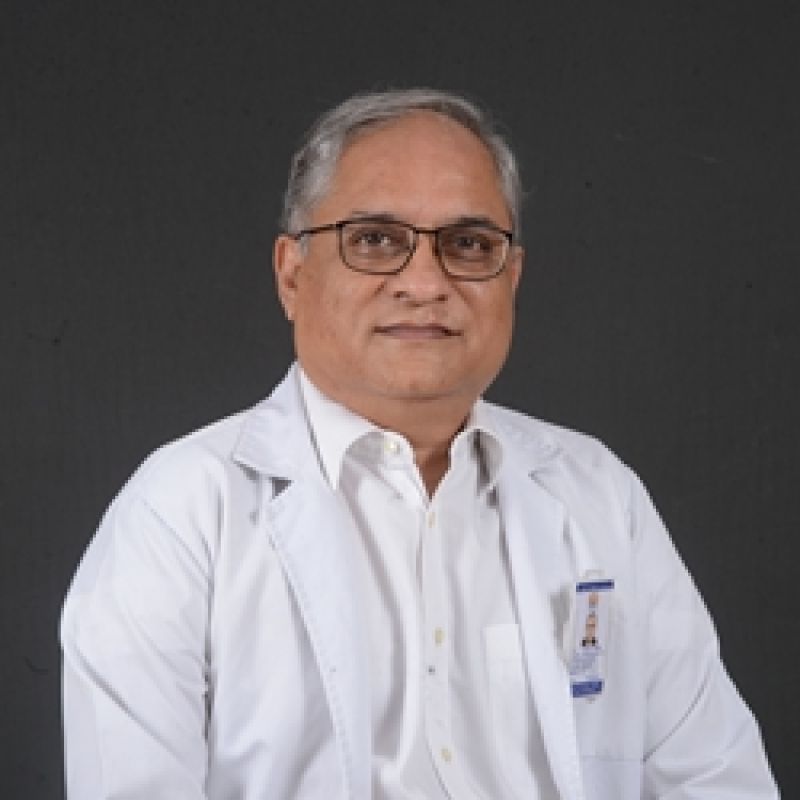
Prof Anura Kurpad
Anura Kurpad is Professor of Physiology at St John’s Medical College, Bengaluru. He received his MD from St John’s Medical College, and PhD from Bangalore University. After international periods spent at Cambridge University, Rowett Research Institute, and the Massachusetts Institute of Technology, he joined the Department of Physiology at St John’s. He is a Fellow of the Royal College of Physicians, London, the Indian Academy of Sciences, the National Academy of Medical Sciences, and the International Union of Nutritional Sciences. He was the President of the Nutrition Society of India from 2012 to 2016 and President of the Asia-Pacific Clinical Nutrition Society. He is the Chairman of the Scientific Advisory Committee of the Indian National Institute of Nutrition, member of Apex Board of the Indian Department of Biotechnology and the National Technical Board on Nutrition, Niti Ayog, Government of India. He has over 550 papers. His research focuses on the physiology, clinical, and public health aspects of human energy, protein and micronutrient requirements and metabolism, at all stages of the lifecycle.

Prof Donald Layman
Dr. Donald Layman is Professor Emeritus in the Department of Food Science & Human Nutrition at the University of Illinois at Urbana-Champaign. He served on the faculty at the University of Illinois from 1977 - 2012. Dr. Layman earned his B.S. and M.S. degrees in chemistry at Illinois State University and his doctorate in human nutrition and biochemistry at the University of Minnesota. He is recognized for research about protein and amino acids for muscle health related to athletic performance, obesity, diabetes, and cardiometabolic health. Dr. Layman is a nutrition consultant to the food industry and active on social media.
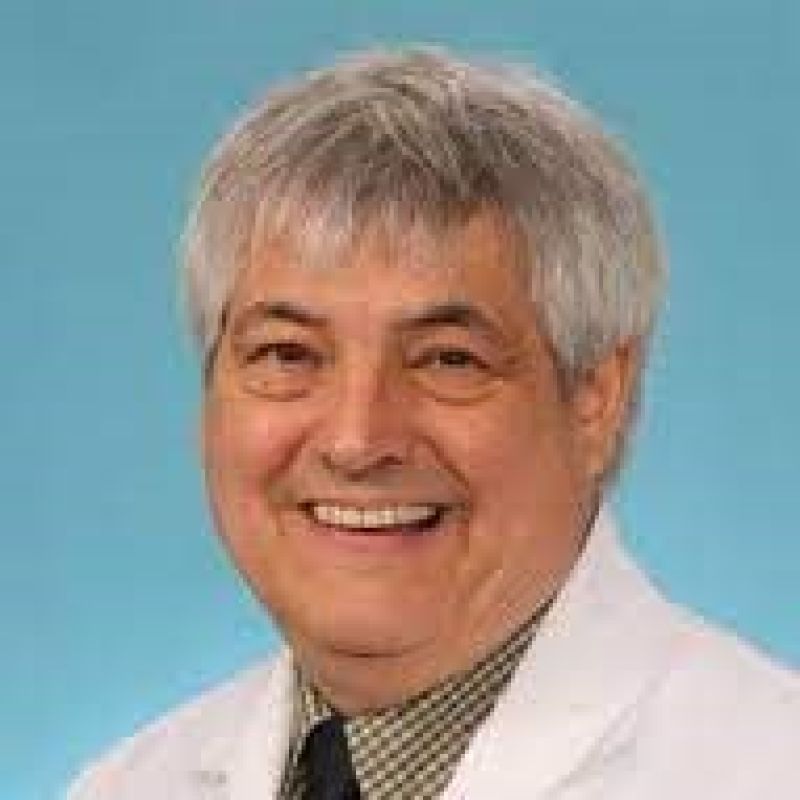
Endowed Prof Mark Manary
Mark Manary was educated as a physician and chemical engineer. He moved to Tanzania in 1985 and has been working in Africa ever since then. His professional goal is to ‘fix malnutrition for kids in Africa’. To this end, He developed ready-to-use therapeutic food and used the food in home-based therapy. Ready-to-use therapeutic food is a novel lipid-based food which has been accepted as the standard of care for uncomplicated severe acute malnutrition by the UN agencies. He did the first clinical trial with this food in 2001. He is currently formulating and evaluating new foods designed to supplement pregnant women at risk for poor pregnancy outcomes, and treat acute childhood malnutrition. He also recognize the importance of work to prevent childhood malnutrition, and to that end is exploring the use of legumes and animal source foods as complementary foods for children 6-24 months in Malawi, Sierra Leone and Ghana. He believes the ultimate solution for malnutrition will incorporate improved agriculture, and hence have close relationship with USAID’s global food security program. He continues to explore the basic pathophysiologoy and metabolism of malnutrition, and I am currently looking at the gut microbiota and metabolome in kwashiorkor and marasmus. He loves engaging students and fellows in his work, as they can be inspired to embrace global health issues and bring fresh perspectives to the problems. In 2004 he formed Project Peanut Butter, an NGO dedicated to food aid product production. Project Peanut Butter makes paste-based foods for children, pregnant women and people with HIV infection. PPB has 4 large factories in Africa, in Malawi, Ghana, Ivory Coast and Sierra Leone. Dr. Manary is an endowed professor at Washington University School of Medicine.

Dr Marco Mensink
Dr Marco Mensink holds a MSc in Health Sciences, specialization movement sciences, and Medicine. He completed his PhD in 2003 within the project: "Relevance of genetic predisposition and lifestyle factors in the pathogenesis of type 2 diabetes". Main research question was: "Can lifestyle favourably affect the natural history in subjects at high risk for type 2 diabetes (IGT)?", with special attention for the role of skeletal muscle fatty acid metabolism. After a post-doc period on muscular fat accumulation and insulin action, he moved in 2008 to Wageningen University, Division of Human Nutrition and Health, His work is positioned in the chair ‘Nutritional Biology’, which primarily focuses on the significance of nutrition to maintain or improve a persons’ physical and cognitive performance during ageing, recovery and rehabilitation. Dr Mensink is responsible for the research theme ‘Nutrition, Physical activity and Sports’, and involved in the research themes ‘Protein Digestion & Absorption’ and ‘Nutrition and Aging’; and he is responsible for body composition and energy metabolism methodology in the division of Human Nutrition & Health. Next to academic teaching activities, Dr Mensink developed the MOOC 'Nutrition, Exercise and Sports' . Since 2021 he also serves as a co-director of the European Nutrition Leadership Platform (ENLP) essentials seminar.

Assoc Prof Daniel Moore
Daniel Moore is an Associate Professor in the Faculty of Kinesiology and Physical Education at the University of Toronto (UoT) and a member of the Canadian Society for Exercise Physiology and American College of Sports Medicine. His research explores the interplay between exercise and nutrition (with a focus on dietary protein and amino acids) and how the two can be used to optimize the quantity and quality of muscle across a range of different populations including youth, athletes, and older adults. He has authored over 100 peer-reviewed papers and was recognized for his research in protein metabolism by the American Society for Nutrition as the 2012 recipient of the Peter J. Reeds Young Investigator Award.
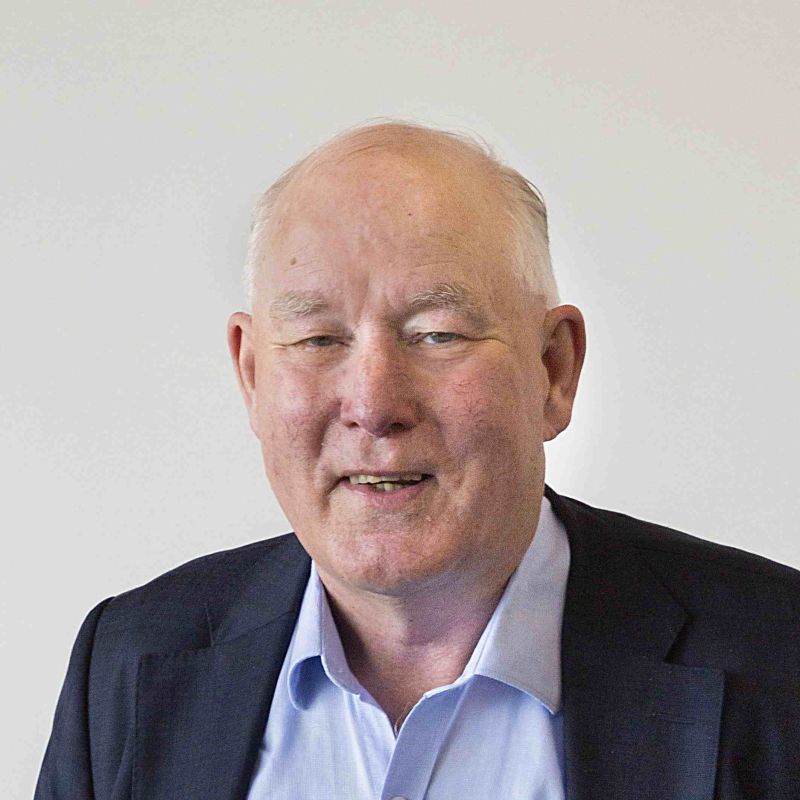
Dist Prof Paul Moughan
Professor Paul Moughan was appointed to the foundation chair in monogastric biology at Massey University in 1993 and from 1997-2003 was Foundation Head, Institute of Food, Nutrition and Human Health, Massey University. From 2003 until 2017 he held the position of Foundation Co-Director of the Riddet Institute, a National Centre of Research Excellence in Food Science and Human Nutrition. Professor Moughan currently holds the position of Distinguished Professor at Massey University and Riddet Institute Fellow Laureate. His research has encompassed the fields of human and animal nutrition, food chemistry, functional foods, digestive physiology and sustainable food production. He has published in excess of 450 scientific works. In 1995 he was awarded Doctor of Science and in 1997 was awarded a Personal Chair at Massey University and was elected a Fellow of the Royal Society of New Zealand. He is a Fellow of the Royal Society of Chemistry, Cambridge, England. In 2011 he was appointed Chair of the FAO Expert Consultation to review recommendations on the characterisation of dietary protein quality in humans, and has been a frequent contributor to FAO and WHO expert Committees. He has received numerous prestigious international awards for his work, including the New Zealand Prime Minister’s Science Prize in 2012. In 2014 he was awarded an Honorary Doctor of Science from the University of Guelph, Canada and in 2018 the Wageningen University Medal of Honour. Professor Moughan sits on a number of editorial boards for scientific journals and is an adviser to the international food industry. In 2015 he was appointed to the Global Food and Nutrition Security Project, Leopoldina, Germany, under the auspices of the international partnership of science academies (IAP) and reappointed by election (2016) and invited to author the Asia-Australasia “Opportunities and challenges for research on food and nutrition security and agriculture in Asia” Report. In 2016 he was appointed to the Global Dairy Platform (GDP) Global Nutritional Security Advisory Council, Chicago, USA and in 2018 was invited to contribute to authorship of the International Academies Partnership (IAP) International Report on World Food Security. In 2021 he was invited to author a regional IAP policy briefing for the UN Food Systems Summit.

Dr Saskia Osendarp
Saskia Osendarp, PhD, is the Executive Director of the Micronutrient Forum, an international expert organization and global platform for evidence, collective action and advocacy in micronutrient health, based in Washington DC. She has more than 25 years of experience in international nutrition research, in both public as well as private sector, and is a visiting associate professor Nutrition and Health at Wageningen University. Saskia’s specific area of expertise is in micronutrients, undernutrition and public health. She lived and worked for 7 years at the ICDDR,B, Bangladesh and spent 10 years in Unilever as Lead Scientist micronutrients and child nutrition. Before joining the Micronutrient Forum, she was working as independent consultant for international NGOs and research institutes. Recently, she has been a co-founder and is co-facilitating the Standing Together for Nutrition Consortium, a collaboration of experts working in nutrition, foodsystems, health and economics analyzing the impact and responses of the COVID19 crisis on malnutrition. Dr. Osendarp is a member of the Independent Expert Group for the Global Nutrition Report and is a (co-)author on more than 65 peer-reviewed publications, scientific publications and book-chapters. In 2023 she will be leading the Micronutrient Forum to deliver its 6th Global Conference on Nutrition for Resilience, online and in-person in the Hague, the Netherlands.
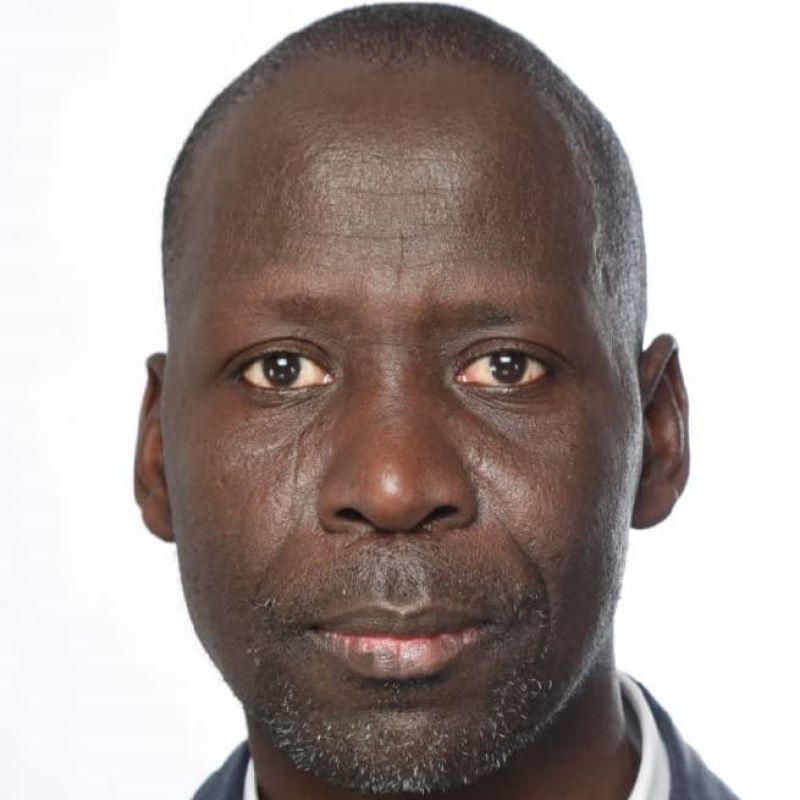
Dr Victor Owino
Dr Victor Owino is a Nutrition Specialist in the International Atomic Energy Agency’s Nutritional and Health-Related Environmental Studies Section. His work over the past 8 years focuses on supporting IAEA Member States to apply stable isotope techniques to design and evaluate nutrition interventions that target all forms of malnutrition. Specific areas include assessment of protein quality, interaction between adverse environmental exposures, nutrient metabolism and related nutritional and health outcomes. Dr Owino previously worked with Valid Nutrition on development and testing of the efficacy of novel ready to use foods for management of acute malnutrition and headed the Department of Human Nutrition at the Technical University of Kenya.

Prof Isidra Recio
Dr Isidra Recio, has a PhD in Pharmacy by University Complutense of Madrid, and is Research Professor of the Spanish National Research Council (CSIC) at the Institute of Food Science Research, CIAL (CSIC-UAM) in Madrid (Spain). Isidra is a co-author of more than 160 publications in indexed scientific journals. These articles have been cited more than 13,000 times and she has an h-index of 56 (Web of Knowledge). She was awarded as Highly Cited Researcher from 2019 to date by this scientific citation index. Her research has been also oriented to the industry with 10 patent applications; two of these have been licensed to the industry.
Isidra's main research interests aim to study health implications of the protein fraction of foods and their physiological effect when they are consumed, especially intestinal signalling of protein digestion products. Other research activities include: the upgrade proteins by enzymatic hydrolysis, and fermentation to obtain products with enhanced functional and biological properties; and development of cost-effective methods to produce functional ingredients. She is leading one working group within the INFOGEST network dedicated to the development and application of digestion protocols. She has worked at different international institutes: NIZO food research (The Netherlands, 1997-2000) and AgroParisTech (France, 2013-2015).
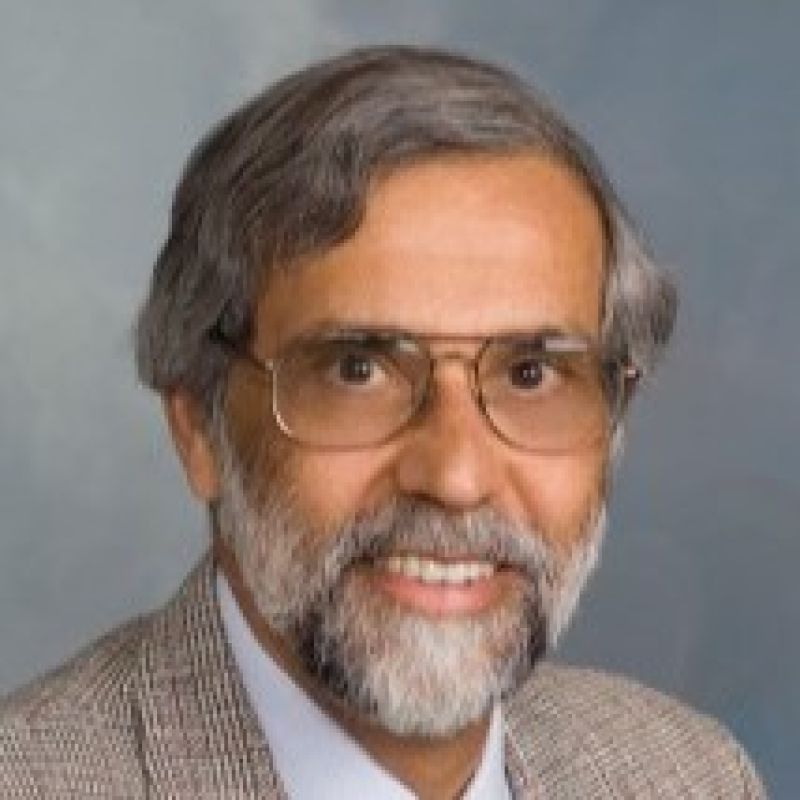
Dist Prof R. Paul Singh
Dr. R. Paul Singh is a Distinguished Professor Emeritus of Food Engineering, University of California at Davis. He received his degrees in agricultural engineering from Punjab Agricultural University, India, (B.S); University of Wisconsin, Madison, (M.S.); and Michigan State University, East Lansing, (Ph.D.). Dr. Singh’s research involves computational modeling of food processes to improve the sustainability of industrial food manufacturing, design of novel food processing equipment, and study of food digestion for improved bioaccessibility of nutrients in the human body. He is an author or co-author of 17 books, 3 patents, and over 290 refereed papers. His co-authored textbook (with Dennis Heldman), Introduction to Food Engineering, is translated into 7 languages and used worldwide in food engineering education. Dr. Singh is a Fellow of the Institute of Food Technologists, the American Society of Agricultural and Biological Engineering, and the International Academy of Food Science and Technology. He received the Kishida International Award in 2007 and the 2013 Massey Ferguson Gold Medal for education from the American Society of Agricultural and Biological Engineers. In 2008, he was elected to the US National Academy of Engineering. In 2010, the Institute of Food Technologists awarded him the Nicolas Appert Award—the highest food science award in the United States. In 2015, he received the World Agriculture Prize from the Confederation of Higher Education Associations for Agriculture and Life Sciences. In 2018, he received a Doctor of Science, honoris causa, from the University of Guelph, Canada. Currently, he serves as an Editor-in-Chief of the Journal of Food Engineering.

Dist Prof Harjinder Singh
Distinguished Professor Harjinder Singh is the Director of the Riddet Institute (Centre of Research Excellence), Massey University, New Zealand. His research expertise includes dairy science and technology, food colloids, food protein functionality, functional foods, and food structure-nutrition interface. He has published over 400 research papers in international journals and has delivered around 140 keynote addresses at international conferences. He serves on the editorial boards of 12 food journals and is a member of several national and international committees. He is a Fellow of the Royal Society of New Zealand and a Fellow of the International Academy of Food Science and Technology, and has received several international awards, including the Marschall Rhodia International Dairy Science Award, the William C. Haines Dairy Science Award, JC Andrews Award, the Shorland Medal and the New Zealand Prime Minister’s Science Prize.

Prof Alice Stanton
Professor Alice Stanton is a clinician-scientist. Current roles include Professor of Cardiovascular Therapeutics at the Royal College of Surgeons in Ireland (RCSI), and Director of Human Health at Devenish Nutrition. As Professor of Cardiovascular Therapeutics, she contributes to all three pillars of RCSI’s strategic plan: delivering a transformative learning experience, leading impactful research, and supporting healthcare and societal well-being in Ireland and internationally. As Director of Human Health, and a Leadership Team Member at Devenish, she contributes to the company’s vision of being the leading provider of integrated environmental, animal and human health solutions – she is principal investigator on a range of human nutrition-related research projects, and provides expert advice to a range of Devenish teams (Food Innovation, Agriculture & Sustainability, Regulatory Affairs, and Commercial Teams). She served on the Committee developing “Ireland’s Agri-food Strategy to 2030”, and as an Assembly Member for the Horizon Europe Cancer Mission. She is a Member of the Irish Climate and Health Coalition, and of the World Action against Salt, Sugar, and Health (WASSH). Most recently she was lead author on a letter, published in The Lancet, which robustly questions the reliability of the Global Burden of Disease 2019 collaborators’ estimates of deaths attributable to unprocessed red meat. She has authored in excess of 150 peer-reviewed published papers and has a Scopus h-index of 58.

Prof Hans Stein
Hans H. Stein is a Professor of Nutrition in the Division of Nutritional Sciences and the Department of Animal Sciences at the University of Illinois, USA, where he has responsibilities in research, Extension, and teaching. His team consists of Graduate students, post-doctoral Research Fellows, research technicians, and visiting scholars. His research focuses on feed ingredient evaluation, digestibility and utilization of energy and nutrients by pigs and humans, and development of systems for accurate diet formulation. Dr. Stein has mentored more than 100 Graduate students, Post-doctoral research fellows, interns, and visiting scientists. He has authored or co-authored approximately 355 peer-reviewed publications and he has given invited presentations on nutrition in 41 countries.
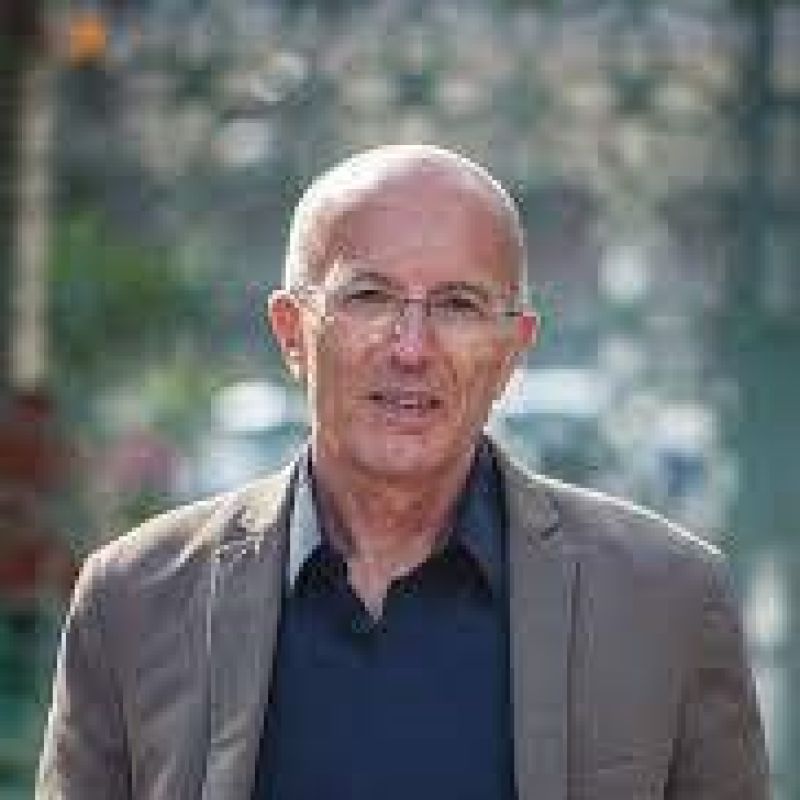
Prof Daniel Tomé
Professor Daniel Tomé has an educational background in biochemistry, biology, food science, and nutrition (Paris, France). He started in 1976 as a researcher at INRAE (French National Research Institute for Agriculture and Environment) and became in 1995 Professor in Human Nutrition at AgroParisTech. His expertise is mainly related to protein and amino acid requirements and food protein quality. His research addressed important scientific and methodological challenges with major consequences for nutritional security and public health policies. He developed stable isotopes tracer approaches for analysing protein and amino acid bioavailability, and amino acid utilisation and partitioning through anabolic and catabolic pathways to maintain tissue and body functions. He also contributed to the evaluation of the mechanisms by which protein sufficiency is controlled through signalling processes that modulate and adapt protein and amino acid metabolism and feeding behaviour to maintain protein-energy balance and protein status. Daniel has been Associate Editor for the Journal of Nutrition since 2012. He has advised expert committees including EFSA, ERC, FAO, WHO, and IAEA on nutrition and food. He is particularly involved in the establishment of reference values for protein and amino acid requirements and the quality of protein sources for human populations. He has received significant recognition for his research, including the prize of the French Institute of Nutrition (2008), the “Lauriers d’Excellence” (Laurels of Excellence) of INRAE (2016), and was made Fellow of the American Society for Nutrition (ASN Fellow, 2023) for his outstanding research career.

Prof Hanna Tuomisto
Hanna L. Tuomisto is a professor in sustainable food systems at the University of Helsinki and at the Natural Resources Institute Finland (Luke). She leads the Future Sustainable Food Systems -research group at the University of Helsinki. Tuomisto’s research interests are focused on the development of sustainability assessment methods and estimating the potential of different approaches (e.g. emerging food technologies, dietary change and agroecological farming) to improve the sustainability of food systems. She has a strong experience in the development and use of environmental sustainability assessment methods, such as life cycle assessment and carbon footprinting. Tuomisto is one of the world’s leading researchers in the field environmental sustainability assessment of cell-cultured food production technologies. She is one of the few researchers with over 14 years of experience in the field of cellular agriculture. Currently, Tuomisto leads and is involved in various projects related to sustainability cell-cultured foods and other alternatives to animal source foods. Tuomisto holds an MSc degree in Agroecology from the University of Helsinki and a doctoral degree from the University of Oxford. In her doctoral degree, she compared environmental impacts of organic, conventional and integrated farming systems. After finishing her doctoral degree, she worked as a postdoctoral researcher at the European Commission’s Joint Research Centre (JRC) where she was involved in projects that developed carbon footprint and environmental footprint methods for agriculture and food sector. In 2016-2017, Tuomisto worked as postdoctoral researcher at London School of Hygiene & Tropical Medicine (LSHTM) where her work focused on the links between environmental change, nutrition and health.

Prof Luc van Loon
Professor van Loon was appointed Professor of Nutrition and Exercise at Maastricht University in The Netherlands in 2010. He also serves as a visiting Professor at the Free University of Brussels in Belgium and the Australian Catholic University in Melbourne, Australia. Luc has an international research standing in the area of skeletal muscle metabolism, has published well over 450 peer-reviewed articles (more than 20.000 citations) achieving an H-index of 86. Current research in his laboratory focuses on the skeletal muscle adaptive response to physical (in)activity, and the impact of nutritional and pharmacological interventions to modulate metabolism in both health and disease. The latter are investigated on a whole-body, tissue, and cellular level, with skeletal muscle as the main tissue of interest. He is active in various media to translate research findings to the general public, highlighting the impact of nutrition and physical activity to support performance and health.

Assoc Prof Hannah van Zanten
Dr. Hannah van Zanten is Interim Chair Holder and Associate Professor at the Wageningen University Farming Systems Ecology group and visiting professor in the Department of Global Development at Cornell University. It is Hannah’s passion to redesign food systems that respect human and planetary health. Hannah graduated cum laude from Wageningen University in 2009 with a master’s degree in Animal Sciences. Her PhD project focused on the environmental benefits of using human inedible-sources as livestock feed. Since graduating, cum laude, for her PhD, she continued to work in this research-area. With her team, she developed the circular food systems (CiFoS) model where stakeholders can co-design and evaluate innovative yet attainable food systems that secure human and planetary health. Her latest publication in Nature Food showed that redesigning the European food system based on circularity principles brings great environmental benefits (link paper and link CiFoS dashboard - Circular Foodsystems and video). She received several personal grants and prices such as the NWO Talent Scheme grant (VENI) and the Global FoodShot price.

Prof Malcolm Watford
Malcolm Watford was born and raised in England. He received his Bachelor of Science in Applied Biology from Trent Polytechnic and completed his D.Phil. thesis “The Regulation of Mammalian Glutamine Metabolism” at Oxford University under the direction of Hans Krebs. He undertook postdoctoral training at the Universite de Montreal and Case Western Reserve University. In 1990, after eight years at Cornell University, he moved to his current position at Rutgers University. He established that hepatic glutaminase (GLS2) was subject to long-term nutritional and hormonal regulation in the rat, and was the first to purify the enzyme, raise antibodies to it, and clone both the cDNA and genomic sequences. Currently his work focuses on the role of glutamine cross talk between tissues, specifically the provision of glutamine from adipocytes to mammary epithelial cells during lactation using a newly developed knockout mouse model. In addition, with industrial and academic collaborators, he has carried out extensive studies of amino acid supplementation to lactating and weanling pigs. His most recent collaboration, however, involves the analysis of protein and energy nutrition in wild orangutans. He is a regular reviewer of grant applications and has provided opinions on protein and amino acid nutrition as an expert witness in a number of civil court actions. He has served on many editorial boards most notably ten years as an Associate Editor of the Journal of Nutrition and thirteen years as a member of the Editorial Committee of the Annual Review of Nutrition. He has contributed several textbook and encyclopedia chapters and has received a number of awards for teaching. At Rutgers he teaches advanced nutritional biochemistry and physiology. In addition, he regularly teaches minicourses on tissue-specific metabolism and metabolic regulation at a number of other institutions in the USA, China, Brazil and Spain. In 2017 he was elected as a Fellow of the American Society for Nutrition.

Prof Robert Wolfe
Dr. Wolfe is Jane and Edward Warmack Chair in Nutritional Longevity, University of Arkansas for Medical Sciences, Little Rock, AR. Dr. Wolfe previously held chairs at Harvard Medical School and The University of Texas Medical Branch. Dr. Wolfe is a world leader in the fields of human metabolism and stable isotope tracer methodology, with more than 600 publications, 5 books and 14 patents to his credit. According to Google Scholar his papers have been cited more than 86,000 times (h factor =143). He has been funded by competitive grants from the National Institutes of Health continuously throughout his 40-year career. He has served as a member of several government and industry committees and advisory boards and has received numerous honors and awards for his work.

Maria Xipsiti
Maria Xipsiti is a Nutrition Officer at the Food and Nutrition Division of the Food and Agriculture Organization of the United Nations. Her work focuses on providing scientific guidance to FAO Member Countries for the development of international food standards. Specific areas include assessment of protein quality, nutrient requirements and food labelling implementation. She also represents FAO at the Codex Alimentarius Committees on Nutrition and Food Labelling. Maria previously worked for governmental and non profit organizations including the European Commission where she provided scientific and regulatory advice on nutrition and consumer protection matters.
Workshop Speakers
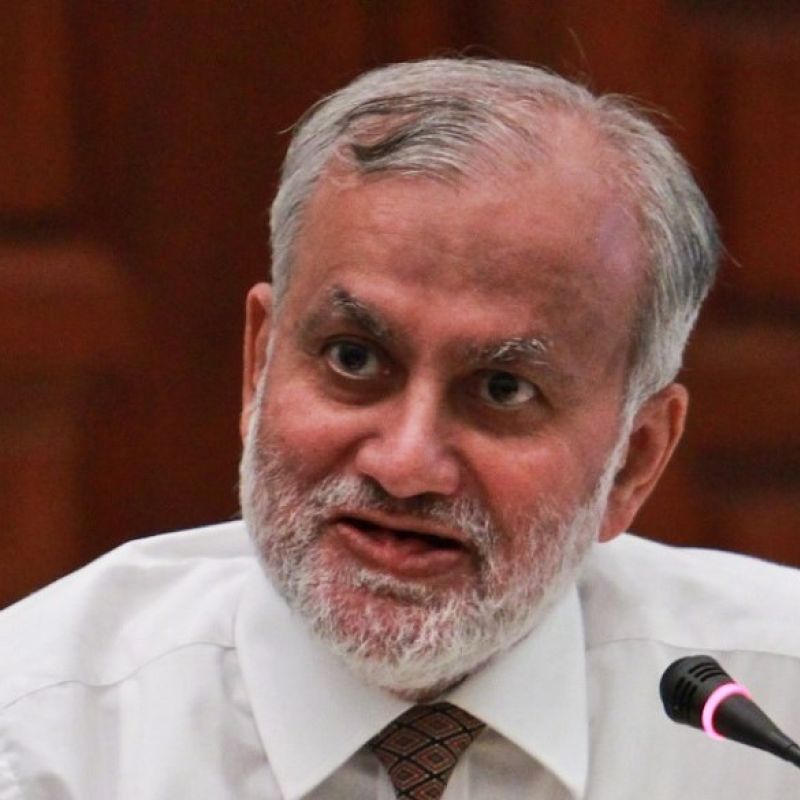
Prof Subbanna Ayyappan
Professor Subbanna Ayyappan, with a master’s degree in Fisheries Science, has a PhD in Aquatic Microbiology. With several assignments during a scientific career spanning four decades, he is a Fellow of NAAS and NASI. He has been conferred DSc (honoris causa) by 15 universities and is a recipient of over 30 national awards, including Padma Shri, 2022 and Karnataka Rajyotsava Award, 2013.
Ayyappan has represented the country in important international fora. His visits to over 40 countries have developed a deep understanding and widened the horizon of his vision of food and agriculture, education and rural development, especially in developing countries.

Dr Rolf Bos
Dr Rolf Bos has a MSc degree in Biochemistry and holds a PhD degree in Medical Sciences from Groningen University in the Netherlands (1996) in the area of bioadhesion. Dr Bos is (co)author of several scientific publications in international journals in the area of nutrition and health. He brings over 25 years of R&D experience in nutrition and health and is currently Director of the Global Expert team Nutrition at Royal FrieslandCampina.

Prof Thom Huppertz
Prof. Thom Huppertz hold an MSc from Wageningen University and a PhD from University College Cork. His career includes academic and industrial research in the field of dairy science and technology and early life nutrition. His research has spanned many dimensions. From products to processes, and their interactions, from biosynthesis of milk to digestion of milk constituents in the human body, and from product and process optimization to the role of milk and dairy products in sustainable food systems. He currently combines the roles of Professor of Dairy Science and Technology at Wageningen University, Principal Scientist at FrieslandCampina, Distinguished Visiting Professor at Victoria University and Editor-in-Chief of International Dairy Journal. In addition, has been an active member of committees in the International Dairy Federation, Global Dairy Platform and FAO. He has published over 200 scientific publications and book chapters which have been highly cited.
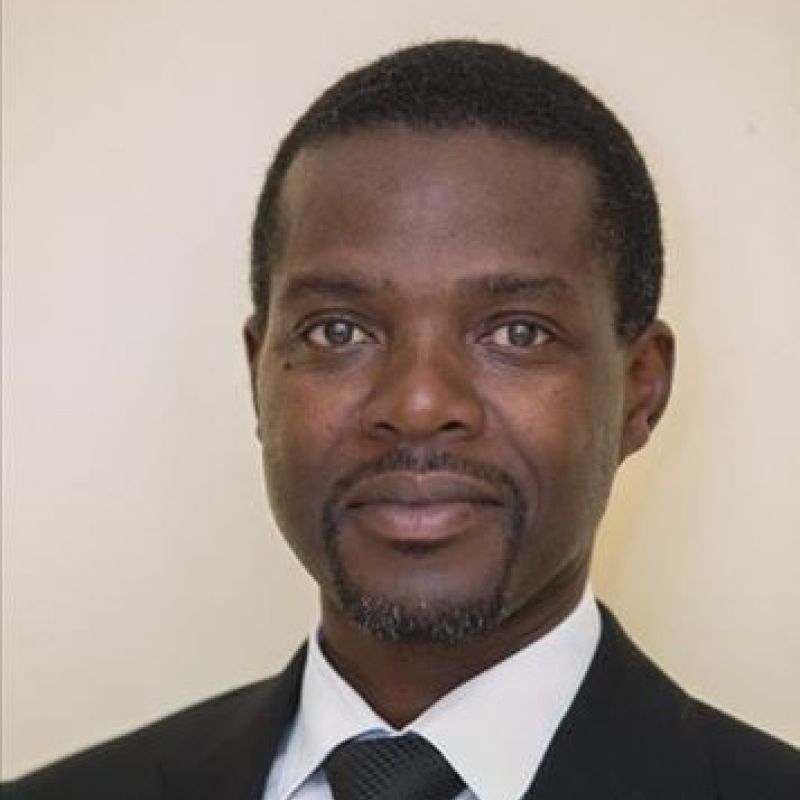
Prof Ken Maleta
Professor Ken Maleta holds qualifications in general medicine and epidemiology and is currently Professor of Public Health at the School of Public health and Family Medicine, College of Medicine, Malawi. Ken’s research interests have concentrated on epidemiological research on prevention and treatment of undernutrition. Major interest has been the epidemiology, prevention and treatment of maternal and childhood undernutrition focusing on food-based interventions. Related interests have been the understanding of childhood growth and development, body composition and nutrition–infection interactions. Ken also has professional interest in HIV, health systems and medical education.

Nuria Moreno
Nuria Moreno is Secretary General of EUVEPRO, the European association representing manufacturers of plant-based proteins for human consumption, based in Brussels. Nuria is experienced in association management for a variety of global and European food industry associations. Her expertise ranges from regulatory affairs and advocacy on food ingredients, to Codex Alimentarius and ISO standards, as well as agricultural sustainability topics. In addition, she has guided associations through strategic exercises and governance changes. She holds a Master’s degree in European Public Affairs from Maastricht University (The Netherlands).

Beatrice Trotin
Beatrice Trotin has a master’s in nutrition and human physiology, and agronomy engineering. She has 20 years’ experience in project management in research and development for the agro-food industry, with her areas of research including:
- pre-clinical and clinical assessment of health impact of dairy, fibers, prebiotics and probiotics;
- nutritional sciences programme coordinator for plant-based dairy alternatives portfolio;
- assessment of nutritional and health quality of dietary patterns.
Her current focus is on mathematical modelling for food and diet impact valuation, combining metrics of nutritional assets with environmental and social impacts of foods and diets. Her objective is defining pathways to more sustainable diets and agro-food systems.

Dr Patricia Williamson
Patricia Williamson is a Principal Scientist in Scientific and Regulatory Affairs for Cargill. She has supported health and wellness ingredients including plant proteins. Her responsibilities have included the review and conduct of scientific research for ingredient support. She has been responsible for formulating research strategies, education, nutrition translation, outreach efforts, and collaborations to push innovations and support the beneficial effects of food ingredients. She carries a practical working understanding of food and agriculture from the vantage point of commodity food ingredient processing and specialty food ingredients. She actively serves on several professional committees, including Soy Nutrition Institute-Global and the IAFNS Carbohydrates Committee where she currently serves as the committee chair. Dr. Williamson’s background in nutritional biochemistry, gastrointestinal health, metabolism, appetite regulation, and endocrinology are reflected in her professional publication history. She also has interests in food & nutrition regulation and policy. Dr. Williamson received a bachelor's degree from Central Methodist University in Biology, and both a master's and doctor of philosophy degrees in Nutrition Sciences from the University of Missouri – Columbia, Mo with emphasis in biochemistry and endocrinology respectively. Her post-doctoral work was completed at the Oregon National Primate Research Center in neuroendocrine regulation of appetite and reproductive physiology.

2022 © Riddet Institute